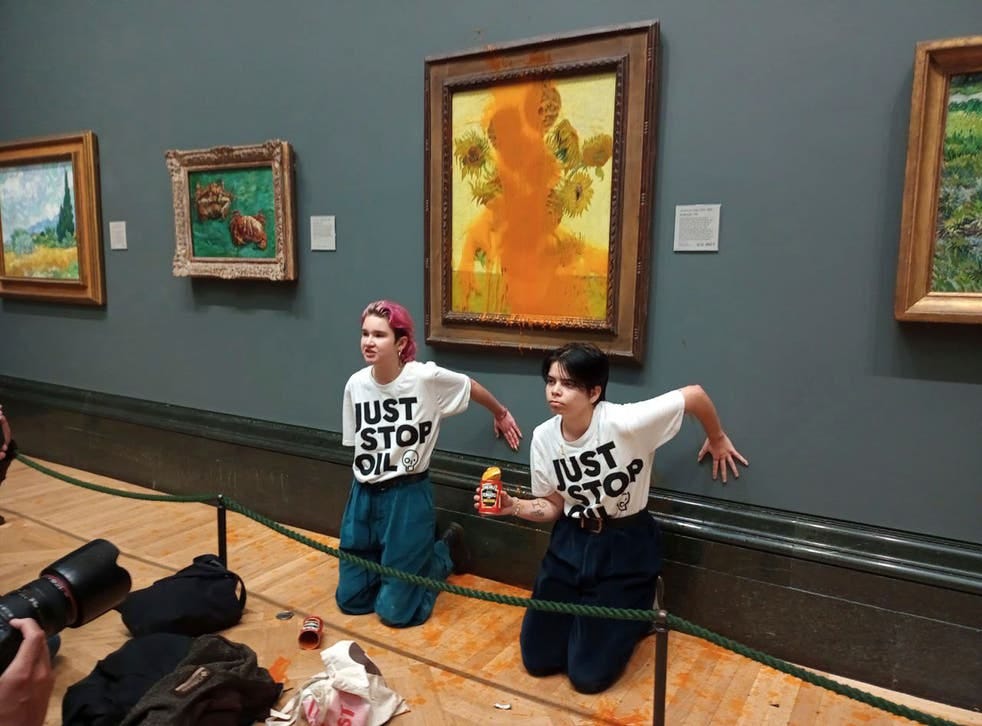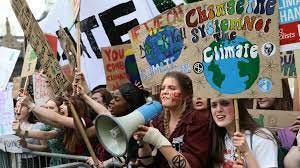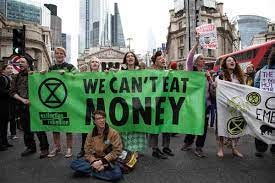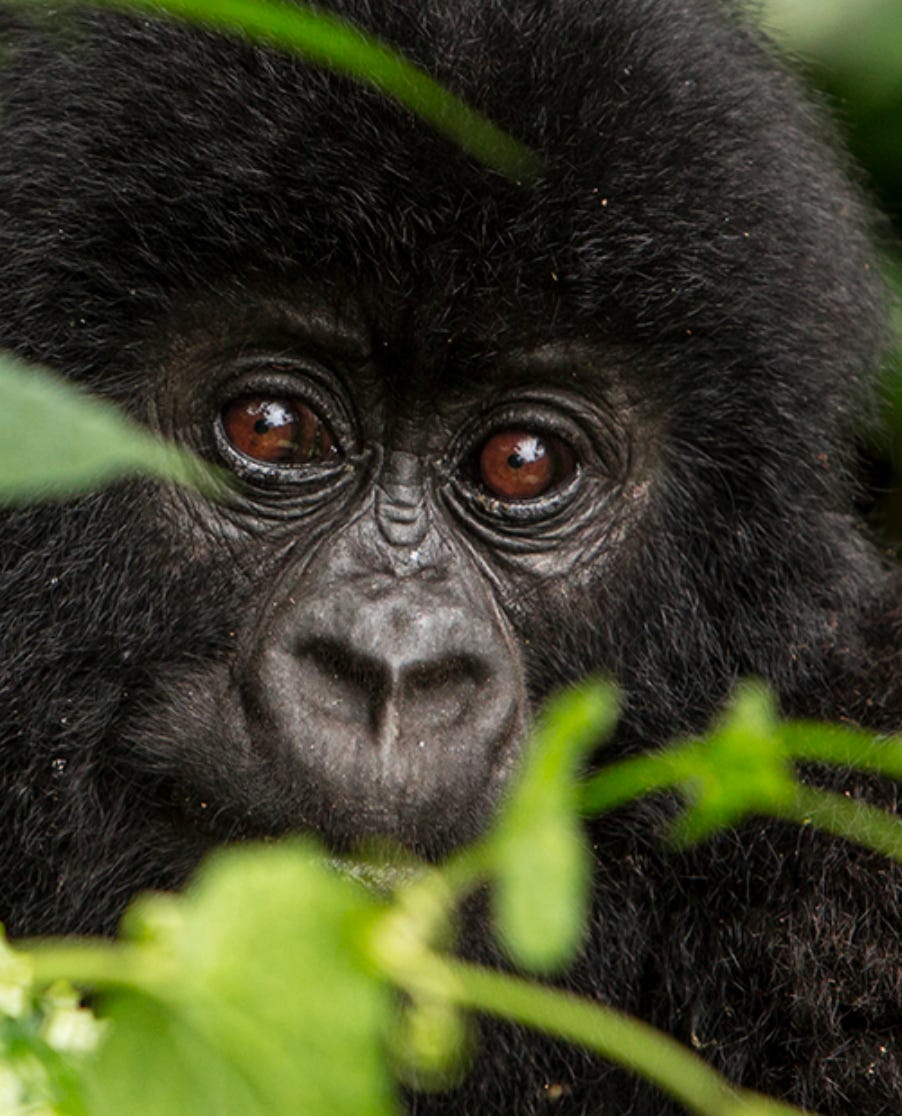Is there a right type of climate activism?
A week of soup, milk and bridges
The Cambridge Dictionary definition of activism is: “the use of direct and noticeable action to achieve a result, usually a political or social one”.
I felt like I had to remind myself of this before I wrote this post, because it’s been a helluva week for climate stunts. Unless you’ve been living in a cave, you’ll have seen this week how Just Stop Oil, a coalition of groups aimed at stopping governments from relying on gas and oil, conducted several stunts that made international news headlines.
But was their activism - which included chucking soup on a Van Gogh painting and Animal Rebellion’s (emptying cartons of milk in a supermarket) - ‘good activism’, and what does that mean?
I don’t know. I can’t say if it falls into a good or bad camp, but I do want to interrogate what constitutes impactful climate action. I’m not convinced, in the same way I sometimes raise my eyebrow at Extinction Rebellion, that this is it – but I am open to changing my mind.
On the one hand, I, someone who works in corporate sustainability, and writes about it for newspapers and magazines, visited Just Stop Oil’s website off the back of their actions. But I also sifted through a jumble of their press releases and videos and feel a touch confused. My main takeaways from their site is that they seem to like sabotage and videos of themselves being dragged away from things. It takes some scrolling until I see the phrase: “Oil is causing the climate crisis and the cost of living crisis” (Is it?).
Unarguably, this is activism in action – they used direct and noticeable action to achieve a result. I visited their website, I now know more about them. Five stars.
What’s been achieved?
The world is talking about their stunt. This is great. But calling yourselves Just Stop Oil isn’t enough. Saying it causes the cost of living crisis two thirds of the way down your webpage isn’t enough. Throwing soup at something that’s free to view, and a lot of people enjoy looking at, regardless of their income or background feels like a misjudged move.
Climate activism isn’t new. Greenpeace and Friends of the Earth have been visibly campaigning to bring attention to resource depletion and biodiversity destruction since the 1980s. Climate activism has demanded more attention in recent years, and Public Attitude Action Trackers survey has found that those who are ‘very concerned’ about the environment has shot up from 23% in 2017 to 35% in 2019. Squished within those two years saw the birth of Extinction Rebellion (XR) and Greta’s school strike for climate.
That’s why in today’s PR for the Planet I want to ask: does activism around climate work? Is all PR really good PR? And is there a good way of ‘doing’ activism?
However much you hate it, it raises awareness
The short answer is yes, activism works. Just see the stats that show a shift in awareness above. It really does. I strongly believe we would not be having such hand-wringing conversations behind closed doors about climate if Greta Thunberg hadn’t done her school strike to raise awareness of the impact of the climate emergency on future generations. But we liked Greta because it was a quiet protest, unobtrusive, and didn’t bother anyone else too much. Boring society was a fan of her work.
On the other hand, Just Stop Oil is loud and brash. Extinction Rebellion falls into the same category, where their stunts tend to overshadow the facts and the seriously bad situation the world is in.
Does it have negative repercussions?
Bad activism, to me, has as many negative repercussions as greenwashing. In the same way that the far left and the far right on the political spectrum sort of end up looking the same if you strip away the colours and the banners, so too do companies saying they’re green, and (some, not all) climate activists. I think this because it takes attention away from the issues at hand - this week’s news has centred around whether art should have more security, whether paintings are elitist, and whether activism is good or not (oh hai). I haven’t read a single piece about Britain’s horrific reliance on oil (oil and gas account for 75 percent of the UK’s energy needs) and how we can shift that reliance to a more sustainable energy source. Thus, I’d argue that this act of action didn’t necessarily achieve the aims the world needs - hard facts, hard solutions, results.
In a blog published by Jake Voohees on Duke University’s sustainability page back in 2018, he draws attention to the fact DDT was still used in the US 10 years after Rachel Carson’s Silent Spring was published, while Edward Abby’s The Monkey Wrench Gang showed how sabotage can bring about change immediately (in the book environmentalists destroy logger’s equipment and trucks using violent means). Sometimes loud and angry protest is needed. He writes: “I realized that the things they were doing, while poor decisions, were choices that they felt would make an immediate impact. By destroying bulldozers or blowing up bridges, the monkey wrench gang drew attention to the atrocities being committed by humans upon nature.”
Activism educates leaders
The stunts enacted this week by Just Stop Oil were brave. Leaders need to know people feel angry about the slow pace of change. CEOs and presidents need to understand that this is the youth saying “enough is enough. We demand change now.” That anger is clear and vital. But my fear, and the creeping sense of dread I felt when I saw the soup stunt, was that it had shifted the discussion back 20 paces. I wonder whether these activists understand that change cannot happen overnight? That we live in a capitalist world, and good or bad, no matter how much soup you throw over art, companies aren’t going to blow themselves up because they feel bad. Businesses get rich because they believe in profit above all else, and that includes the planet. Of course this is misjudged, but there is change happening. And yes it’s slow.
What’s better? Slow and steady or fast and furious?
The reality is even though it took 10 years, DDT was outlawed in the US, and it remains outlawed today. Is good climate activism a case of the Tortoise and the Hare? As a consultant I’ve worked for some of the world’s biggest companies, and everyone is talking about real changes they can make. Often, due to fears of greenwashing, and a legal need to verify stats and information before it goes public, information is drip-fed about company change when it comes to sustainability. I’m not writing to defend business interests, but I do wish that activists could understand that the world is built in a certain way, and that acting within those parameters is vital if real change is not just to occur, but stick. And that’s what matters. A line in some legislation might not make the front page like soup might, but it’s that line that’s going to change the narrative. See for example France’s decision to outlaw all internal flights under 2.5 hours because there are plenty of great train options. Activism was essential to get the conversation going, but evil corporates and government bodies will be the ones to enact the laws and structures that enable change to take place.
Activism needs to work with the whole of society to have an impact
My point is that good activism works in tandem with the rest of society. Even Greenpeace’s director Jennifer Morgan said there is ‘little to celebrate’, and that “Greenpeace is now increasingly embracing other strategies including climate-based legal action against governments and polluters.”
Nobody wants to see the world burn. And activists do a good and important job of jolting the elite out of their bubbles every now and again and reminding them that there are angry people representing the earth’s interests. But acts that alienate, like throwing milk on the floor during a cost of living crisis, probably won’t achieve that, however much people are talking about it.
I have no concrete or pithy summary to this week’s newsletter. Instead, maybe I’ve finished writing this more confused than ever. I’d love to know what you think about climate activism, and whether you think it works. Is it a risk, or a necessity? And do you feel inspired to go and throw soup at anything today?
What’s happening in the world of climate change this week
Youth burnout
Greta Thunberg says the worlds’ youth are experiencing burnout from leading the climate charge. “All the hope in the world rests on burned-out teenagers’ shoulders”. She wishes more people would take responsibility.
Biodiversity is crashing
The World Wildlife Fund for Nature's Living Planet Report found that wildlife populations have declined by a staggering 69% over the past 48 years. Animals in central and southern America have been hardest hit.
New biofuel on the horizon?
Apparently scientists have found that lab-grown duckweed could be a great biofuel. A fun fact for oil-lovers (Just Stop Oil, don’t read on), duckweed oil produces 7x the amount of oil of a soybean.
Greenwashing continues to go mainstream
79 percent of beauty shoppers doubt brand’s claims that they’re actually sustainable. Brands want more than “Vegan, Coral Reef Safe or Organic”.








